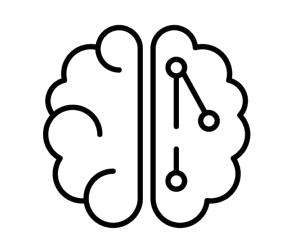Teamwork dynamics in health
Oct 7th 2022
Elements and barriers in health (and others domains) teams, these quotes represent my point of view.
From my experience, I would add ABILITY TO FOCUS, RECIPROCAL ADMIRATION and TRANSVERSALITY SKILLS
![]()
In: Pippa Hall (2005) Interprofessional teamwork: Professional cultures as barriers, Journal of Interprofessional Care, 19:sup1, 188-196.
"Do you see what I see?
Different health care professions have evolved under their own and society’s historic forces and ongoing sociological processes. Each profession has struggled to define its identity, values, sphere of practice and role in patient care. This has led to each health care profession working within its own silo to ensure its members (its professionals) have common experiences, values, approaches to problem-solving and language for professional tools. It is not only the educational experiences, but also the socialization process which occurs simultaneously during the training period that serves to solidify the professional’s unique world view. At the completion of their professional education, each student will havemastered not only the skills and values of his/her profession, but will also be able to assume the occupational identity. This process is called ‘‘professionalization’’ (Loseke & Cahill, 1986). The professional neophytes will be able to ‘‘. . . convince both others and themselves that they possess the expertise and the personal qualities of occupational incumbents’ image of themselves . . .’’ (Loseke & Cahill, 1986, p. 245).
Cognitive learning theory suggests that each profession may attract a predominance of individuals with a particular set of cognitive learning skills and styles (Hall & Weaver, 2001). Educational theory and the learning methods used to teach students in each profession, are linked to these underlying psychological theories (Cooper et al., 2001). Each professional school will use methods best suited to its learners, which will further reinforce the walls of the silo. This may have been reflected in Henley et al.’s study results (2000), where medical students rated nurse practitioner tutors low on expertise in subject matter and problem-solving compared to other areas, perhaps reflecting different approaches to clinical issues. The differences in learning environments for nurses and medical students may also reflect the homogeneity of the culture within each profession. Physicians traditionally learn independently in a highly competitive academic milieu. Nurses learn early in their career to work as a team, collectively working out problems and efficiently exchanging information across shifts to insure appropriate continuity of care for their patients.

Petrie (1976) suggests that each profession has a different ‘‘cognitive map’’ and that ‘‘. . .quite literally, two opposing ‘disciplinarians’ can look at the same thing and not see the samething . . .’’ (p. 35). The cognitive map develops as a consequence of the educational and socialization experiences of the students of each profession, built on each student’s own unique cognitive and constitutional make-up. This map is a major component of the culture of each profession. A major challenge facing proponents of effective interprofessional teamwork is to provide opportunities for team members to understand each other’s cognitive maps."
In: Norsen, L., Opladen, J., & Quinn, J. (1995). Practice model: Collaborative practice. Critical Care Nursing Clinics North America, 7, 43-52.
"The following collaborative skills are essential for effective teamwork:
(1) Cooperation: Acknowledging and respecting other opinions and viewpoints while maintaining the willingness to examine and change personal beliefs and perspectives.
(2) Assertiveness: Supporting one’s own viewpoint with confidence.
(3) Responsibility: Accepting and sharing responsibilities, and participating in group decision-making and planning.
(4) Communication: Effective sharing of important information and exchanging of ideas and discussion.
(5) Autonomy: Ability to work independently.
(6) Coordination: Efficient organization of group tasks and assignments."
Cognitive map icon by vecteezy.com